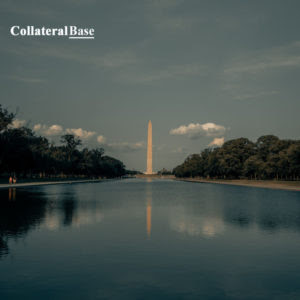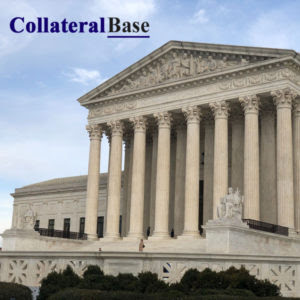Author: Thomas Howard

Contact: https://www.linkedin.com/in/thomas-howard-attorney/
The dormant Commerce Clausse of the Constitution prevents states from discriminating against out-of-state actors in interstate commerce. The dormant term refers to its negative implication rather than express text. Courts have found a negative aspect embedded in the language that prevents state and local governments from impeding the free flow of goods from one state to another, (citation omitted).
Recreational use of Cannabis is legal these days depending on what state you reside. These states are creating legal provisions to regulate the production and sale of cannabis products. The industry has regulatory restrictions to keep the new license holders compliant with the state or local rules. One new legal term of art pushing legalization is Social Equity. Social Equity applicants are codified in law or regulation and often restrict the eligibility of applicants only to state and local residents. Does this self-dealing of the licenses only to state and local applicants violate the dormant Commerce Clause – perhaps.
Many states are approaching Cannabis with the concept of Social Equity programs, designed to repair the damage caused by the regulation of Cannabis as a controlled substance and criminal status on specific areas, in certain zip codes or census tracks that have data supporting dispropriate numbers of arrests. To achieve the goals described above, these programs should facilitate access to the cannabis business to black communities, minorities, and areas impacted by decades of prohibition.
Gaining entry to the Cannabis market as a grower, processor, or retailer is restricted to specific individuals that qualify through the licensing application process. Often the license applications contain residency restrictions, which some sectors see as discriminatory against residents
of other states without a legitimate local purpose for the requirements.

Many business opportunities in this new industry depends on certain Social Equity status. Oftentimes that means that the applicant has proved years of residency in a particular zip code that was disproportionately impacted by the War on Drugs. The other main form of Social Equity status involves an arrest or conviction for marijuana. Some states require the conviction to have only been in its state and not anywhere in the country. These state and local restrictions impede the free flow of goods from one state to another. The dormant Commerce Clause prohibits protectionist state regulation designed to benefit in-state economic interests by burdening out-of-state competitors.
Social Equity attempts to grant access to the cannabis industry favor individuals who live in certain areas with a high rate of arrests related to cannabis or communities with high unemployment and poverty rates. In order to help these communities, some states prioritize applicants with criminal records related to past marijuana convictions. This may be a legitimate local purpose, but that may be challenged in court as more than that is required to satisfy the dormant Commerce Clause.
In practical terms, the core definition of a Social Equity program is the complete opposite of discrimination: It should be more comprehensive, inclusive, and fair, especially when it tries to benefit those who have suffered for the same activities that are entirely legal today. This debate will probably be resolved in court. Those denied applications for cannabis-related licenses have the tools to fight their exclusion with the dormant Commerce Clause unless the restrictions satisfy a legitimate local purpose.
Why is it a dormant Commerce Clause because of a negative interpretation?
On the other side of this discussion is the dormant Commerce Clause. To provide some context, it is a “negative” interpretation of U.S. Constitution’s Article 1 Commerce Clause. It refers to the prohibition of states from passing legislation that discriminates or puts an excessive burden on interstate commerce. Several lawsuits have based their legal reasoning on discrimination against out-of-state companies and individuals and prevailed in such residency requirements in Missouri and Maine.
Despite the dormant Commerce Clause litigation risk, Lawmakers have found legal strategies to justify such restrictions, under the concept of protecting the local economy and business owners. To blockage against such challenges, the state will argue that the residency, or in-state conviction, requirements are narrowly tailored to serve the legitimate local purpose of rehabilitating local communities ravaged by the failed Drug War.
The Dormant Commerce Clause Prohibits Treating Out-of-state and In-state Actors Differently
The list of requirements is different in every state since the federal government only regulated marijuana by prohibiting it entirely. Despite having a certain level of freedom when issuing these licenses, all states that have legalized cannabis business include “resident only” clauses as the cornerstone of their checklists for eligibility for a license. The originalist jurist may look to the long standing history of preventing a state from retreating into economic isolation. Such restrictions must be invalidated by the heightened scrutiny unless it further a legitimate local objective that cannot be served by reasonable non-discriminatory means.
Decades of court decisions have empowered investors and individuals to challenge policies that benefit one state over another. Challenging these burdens so there can be fair competition between state residents and anyone else in the interstate commerce. Participation in State lotteries for Cannabis licenses has also been disputed by lawsuits in recent years. Plaintiffs have demonstrated that some states are making it impossible for non-residents to participate in the process.

Illinois Social Equity Requires In-state Residency, many others do too.
In Toigo v. Dept. of Health and Senior Servs, for example, Plaintiffs allege facts about the inherent restrictions to obtaining a dispensary license In Illinois. Illinois based its licensing system on merit points to obtain a license from the three lotteries held in 2021. The Statute declared that applicants must get at least 85% of the points to be eligible. Plaintiffs were able to demonstrate that applicants from other States were able to obtain a maximum of only 76% of the merit points. In addition, the case also describes that to be recognized as a Social Equity applicant, one must be an Illinois resident. From this perspective, it seems evident that the framework limits the possibilities of any applicants from other states. This is discrimination between out-of-state actors and in-state by law.
The same line of thinking appears in Northeast Patients Group V.Maine Department Of Administrative And Financial Services. A recent modification to the Statutes of Maine restricted the operation of dispensaries and caregivers to commercialize medical Cannabis to Maine residents. Several out-of-state companies and dispensary owners had no options to continue their operations.
What is a legitimate local purpose or public interest in dormant Commerce Clause?
Lots of cases have been decided in federal courts on the dormant Commerce Clause raising the defense of the legitimate local purpose or public interest. The restrictions benefiting state and local actors will be stuck down unless its effects on interstate commerce is only incidental. One of the seminal cases on this issue has to do with solid waste from Oregon, Oregon Waste Systems, Inc. v Dept. of Environmental Quality of Ore., 511 US 93.
The bans imposed by Social Equity on out of state actors are not incidentally impacting interstate commerce. People travel across state lines to access legal cannabis products. “Discrimination simply means different treatment of in-state and out-of-state economic interests that benefit the former and burden the later.” Id at 99. As a result, Social Equity residency restrictions face the virtually per se rule of invalidity as the proper legal standard. The restriction must be narrowly tailored to advance a legitimate local purpose.
The implementation of Social Equity is based on the equitable and accessible access to the cannabis licenses by those most adversely impacted by the enforcement of the cannabis laws in a particular state. The point of Social Equity is creating jobs, business opportunities, and welfare for the state and local communities and individuals directly affected by the illegal status of cannabis, and therefore, such residency restrictions satisfy the legitimate local purpose test, purportedly at least.

The test of whether a discriminatory rule is a constitutional exception to the dormant Commerce Clause was handed down under Hughs v. Oklahoma, 441 US 322 (1979), and become known as the “Hughs Test.” The contested law must serve a legitimate local purpose, and that purpose must be one that cannot be served as well by available nondiscriminatory means. The Social Equity self-dealing to the in-state actors may fail.
Randomly making an in-state person wealthy by granting them an exclusive cannabis business license is not achieving the purportedly legitimate local purpose of rehabilitating disproportionately impacted areas. A tax that applied equally to all people that puts money directly back into those areas does. But that tax does not create a gamified system of winners and losers like limited license social equity cannabis has done intentionally, or by mistake.
Conclusion of dormant commerce clause & social equity cannabis licenses
The days of Social Equity regulatory rubrics that self-deals to only in-state actors may be numbered. Unless Congress uses its power under the Commerce Clause to allow the States to restrict the flow of interstate commerce in a clear intent to allow such discriminatory regulations.






